
Vittorio De Sica was an Italian film director and actor, a leading figure in the neorealist movement.

Rome, Open City, also released as Open City, is a 1945 Italian neorealist war drama film directed by Roberto Rossellini and co-written by Sergio Amidei, Celeste Negarville and Federico Fellini. Set in Rome in 1944, the film follows a diverse group of characters coping under the Nazi occupation, and centers on a Resistance fighter trying to escape the city with the help of a Catholic priest. The title refers to the status of Rome as an open city following its declaration as such on 14 August 1943. The film is the first in Rosselini's "Neorealist Trilogy", followed by Paisan (1946) and Germany, Year Zero (1948).
The Young Cinema Award is a film award given at the Venice Film Festival. The motto of the award is "Spirit of time: a look to the present". The jury consists of one hundred 18- to 25-year-olds from different countries, such as France, Canada, Poland, Hungary, and Italy. The 2016 edition gathered French, Tunisian, and Italian young people.

Giovanna Ralli,, is an Italian stage, film, and television actress.
The Nastro d'Argento for Best Director is a film award bestowed annually as part of the Nastro d'Argento awards since 1946, organized by the Italian National Association of Film Journalists, the national association of Italian film critics.
The Nastro d'Argento for Best Actress is one of the Nastro d'Argento awards. This is a film award assigned each year since 1946, by Sindacato Nazionale dei Giornalisti Cinematografici Italiani, the association of Italian film critics.
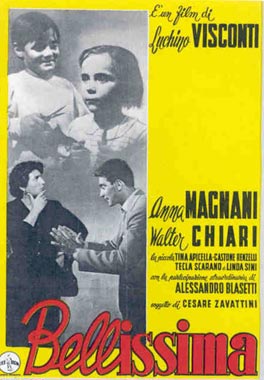
Bellissima is a 1951 Italian drama film directed by Luchino Visconti and starring Anna Magnani, Walter Chiari and Tecla Scarano. In 2008, the film was included on the Italian Ministry of Cultural Heritage’s 100 Italian films to be saved, a list of 100 films that "have changed the collective memory of the country between 1942 and 1978."
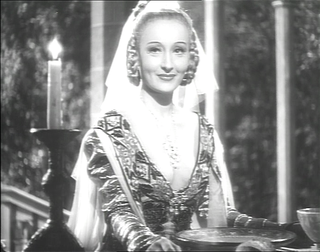
Clara Calamai was an Italian actress.

Matteo Garrone is an Italian filmmaker.

The Bandit is a 1946 Italian drama crime film directed by Alberto Lattuada and starring Anna Magnani, Amedeo Nazzari and Carla Del Poggio. It was shot on location in Turin. Nazzari won the Nastro d'Argento as Best Actor for his performance. The film was entered into the 1946 Cannes Film Festival.

Gomorrah is a 2008 Italian crime drama film directed by Matteo Garrone, based on the non-fiction book of the same name by Roberto Saviano, who also collaborated in the screenplay. It deals with the Casalesi clan, a crime syndicate within the Camorra — a traditional criminal organization based in Naples and Caserta, in the southern Italian region of Campania.
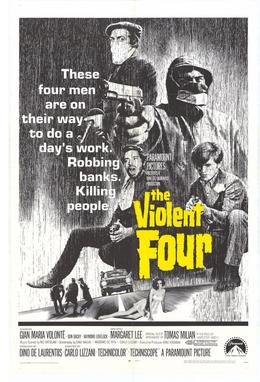
Bandits in Milan is a 1968 Italian crime film directed by Carlo Lizzani. It was listed to compete at the 1968 Cannes Film Festival, but the festival was cancelled due to the events of May 1968 in France. It is the debut film of Agostina Belli. In 2008, the film was included on the Italian Ministry of Cultural Heritage’s 100 Italian films to be saved, a list of 100 films that "have changed the collective memory of the country between 1942 and 1978."
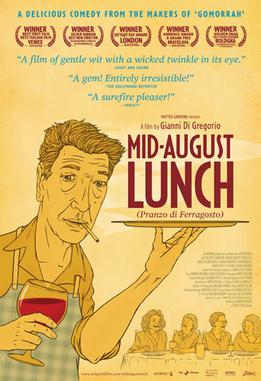
Mid-August Lunch is a 2008 Italian comedy-drama and the directorial debut of Italian actor and screenwriter Gianni Di Gregorio. It was produced by Italian writer-director Matteo Garrone whose 2008 film Gomorrah was co-written by Di Gregorio. It currently is being distributed in the US by Zeitgeist Films.
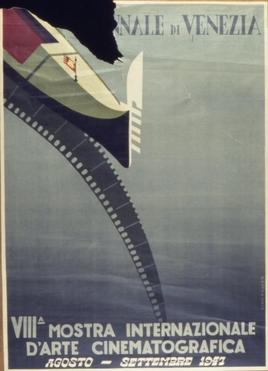
The 8th Venice International Film Festival was held from 23 August to 15 September 1947. Screenwriter Vinicio Marinucci was appointed as the president of the jury.
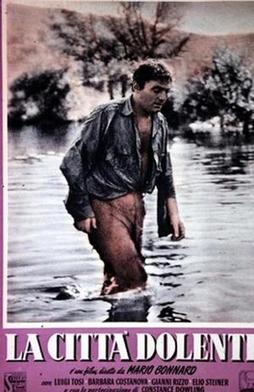
City of Pain is a 1949 Italian drama film directed by Mario Bonnard. It was shown as part of a retrospective "Questi fantasmi: Cinema italiano ritrovato" at the 65th Venice International Film Festival.

The list of the A hundred Italian films to be saved was created with the aim to report "100 films that have changed the collective memory of the country between 1942 and 1978". Film preservation, or film restoration, describes a series of ongoing efforts among film historians, archivists, museums, cinematheques, and non-profit organizations to rescue decaying film stock and preserve the images they contain. In the widest sense, preservation assures that a movie will continue to exist in as close to its original form as possible.
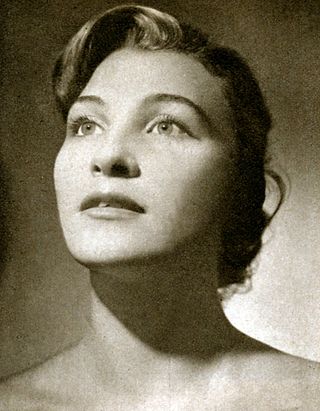
Maria Grazia Francia was an Italian actress of classic cinema.














